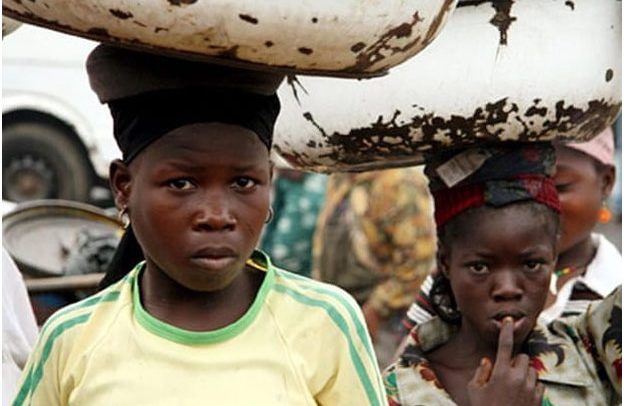Poverty has propelled young girls from the northern part of the country to come to Accra just to work as head porters
A NEW World Bank report has indicated that the prolonged COVID-19 pandemic is exacerbating poverty, disparities, and social conditions in Ghana, disproportionately impacting the poor and vulnerable.
Christened, ‘Saving Lives and Protecting People in Ghana and Boosting the COVID-19 Response’, the report mentioned that gross domestic product (GDP) growth was expected to have slowed to 1.1 per cent in 2020, after averaging 7 per cent per year from 2017 to 2019, adding that Ghana’s labour market had also been hard hit by the pandemic, leading to job losses and lower incomes.
It said in the first three months of the crisis, 77 per cent of the population reported a decline in household incomes while the COVID-19 pandemic also threatened to disrupt the provision of essential health services due to barriers in the supply of, and demand for, services.
“If the disruptions in essential health and nutrition services had continued, including child immunisations, it is estimated that both maternal and child mortality in Ghana could have increased by 21 per cent during 2021,” the report said.
The project contributes to the safe reopening of socioeconomic activities, including schools and applies a multi-sectoral approach, convening line ministries and technical agencies in various sectors, including decentralised government agencies to improve equity and reduce disparities while aligning with other World Bank-supported projects in education, social protection and jobs, water and sanitation, and digital development. These are a part of the World Bank Group’s overall support for Ghana’s COVID-19 emergency response and resilient recovery.
The project was among the first set of emergency support operations approved by the World Bank’s Board of Executive Directors on April 2, 2020 under the dedicated Fast-Track COVID-19 Facility.
While the World Bank provided $232.5 million in International Development Association (IDA) financing, additionally, Japan’s Trust Fund, the Policy and Human Resources Development Fund (PHRD), provided $1 million.
Since the beginning of the pandemic in March 2020, the World Bank has contributed to Ghana’s efforts to contain the spread of COVID-19. The government managed to keep fatality rates low, specifically at 0.75 per cent, as of March 4, 2021. The most vulnerable groups continued to receive essential health and nutrition services, despite the disruption in the first three months. According to a survey, Responding to ‘COVID-19 in Africa: Using Data to Find a Balance – Part II’, almost 90 per cent of respondents reported that they were satisfied with the government’s response.
BY Samuel Boadi


